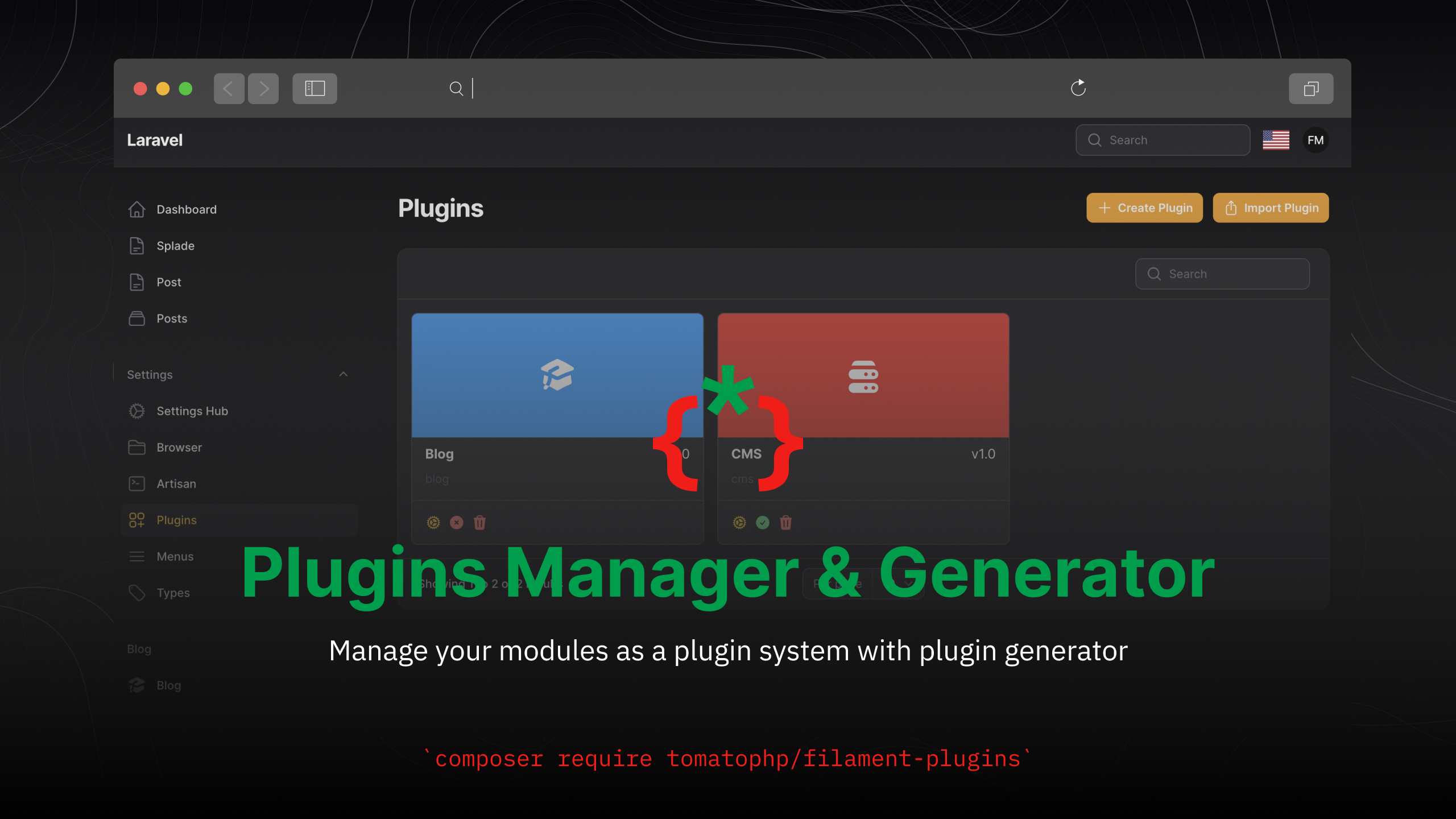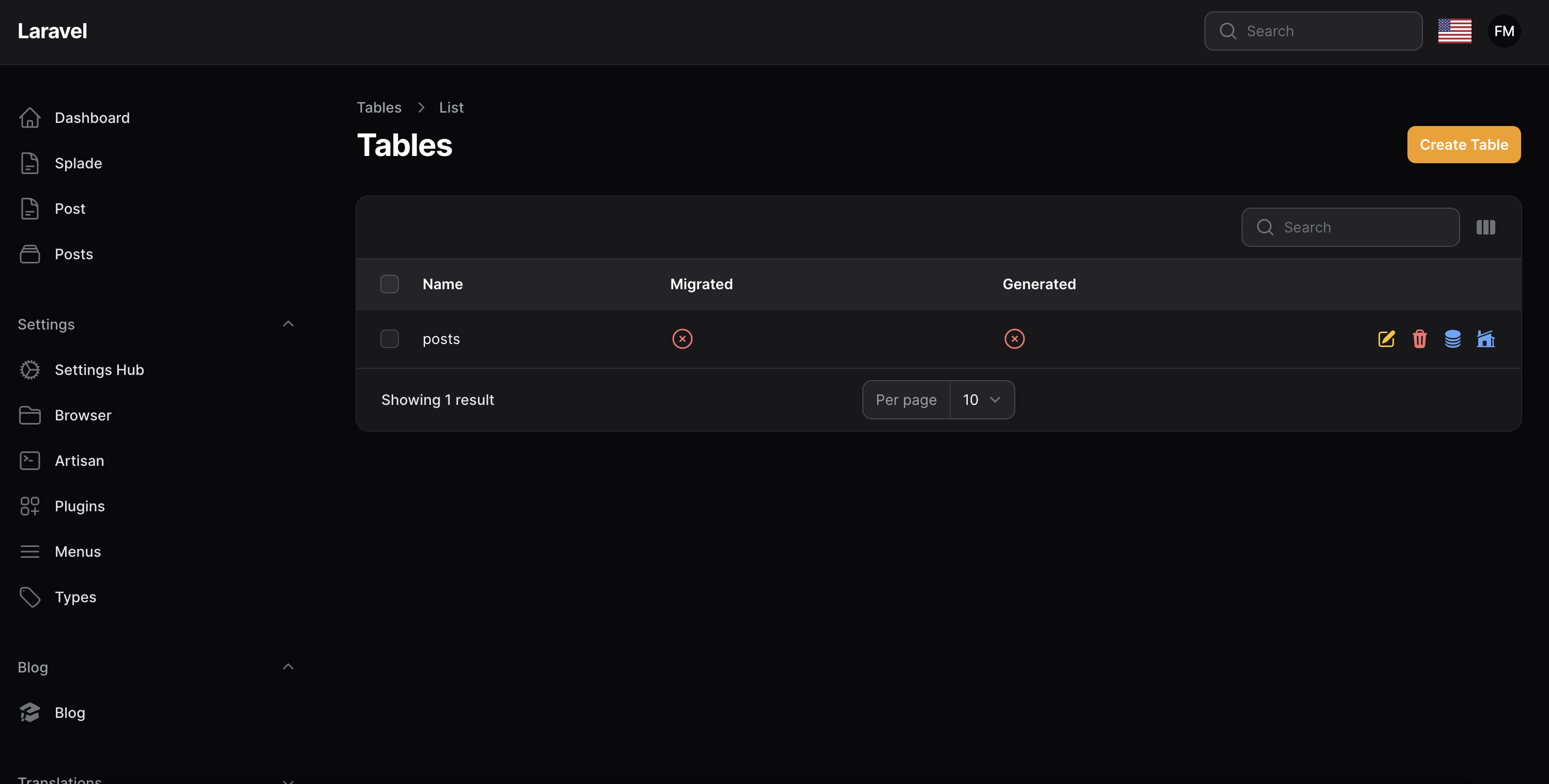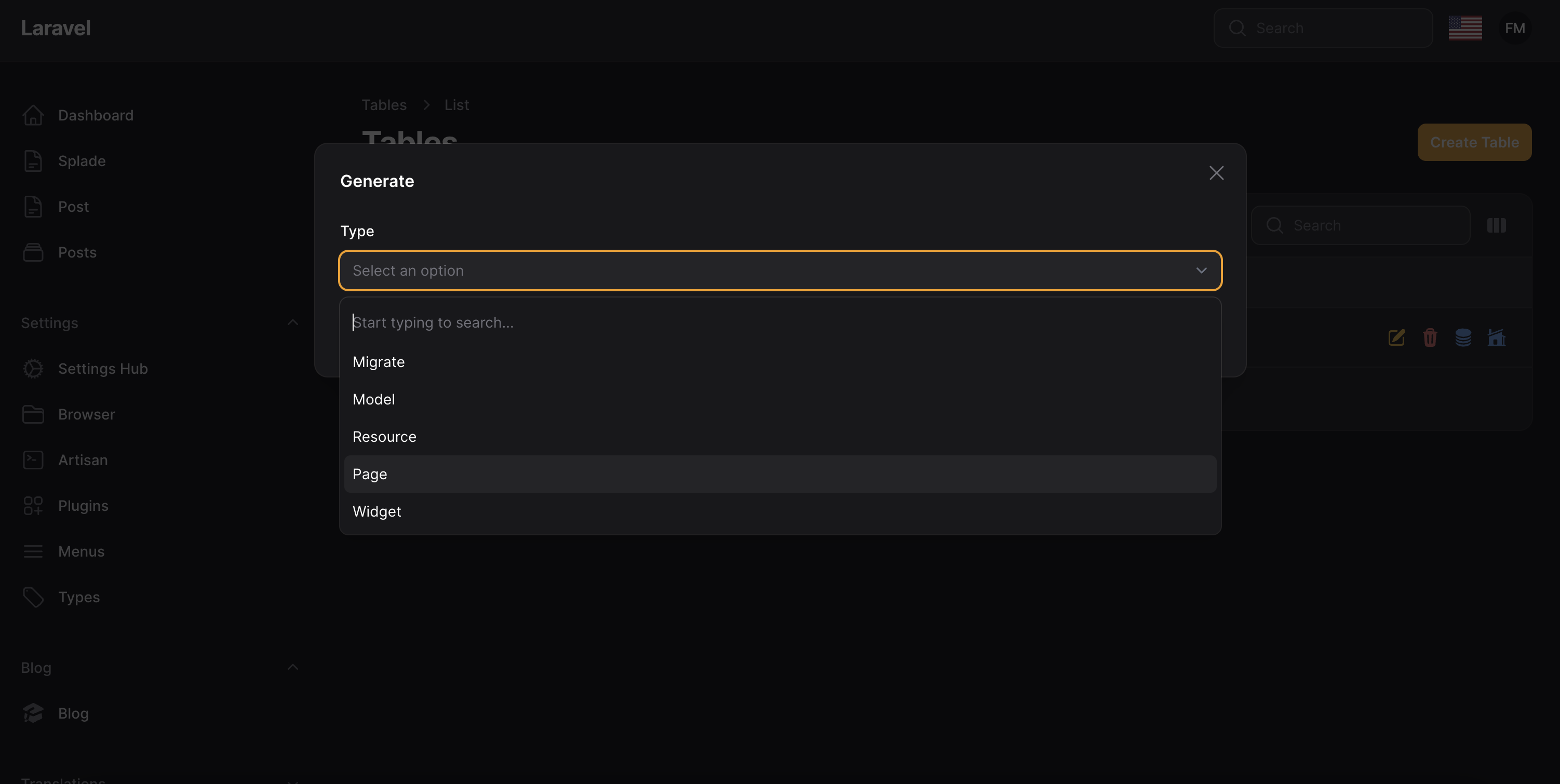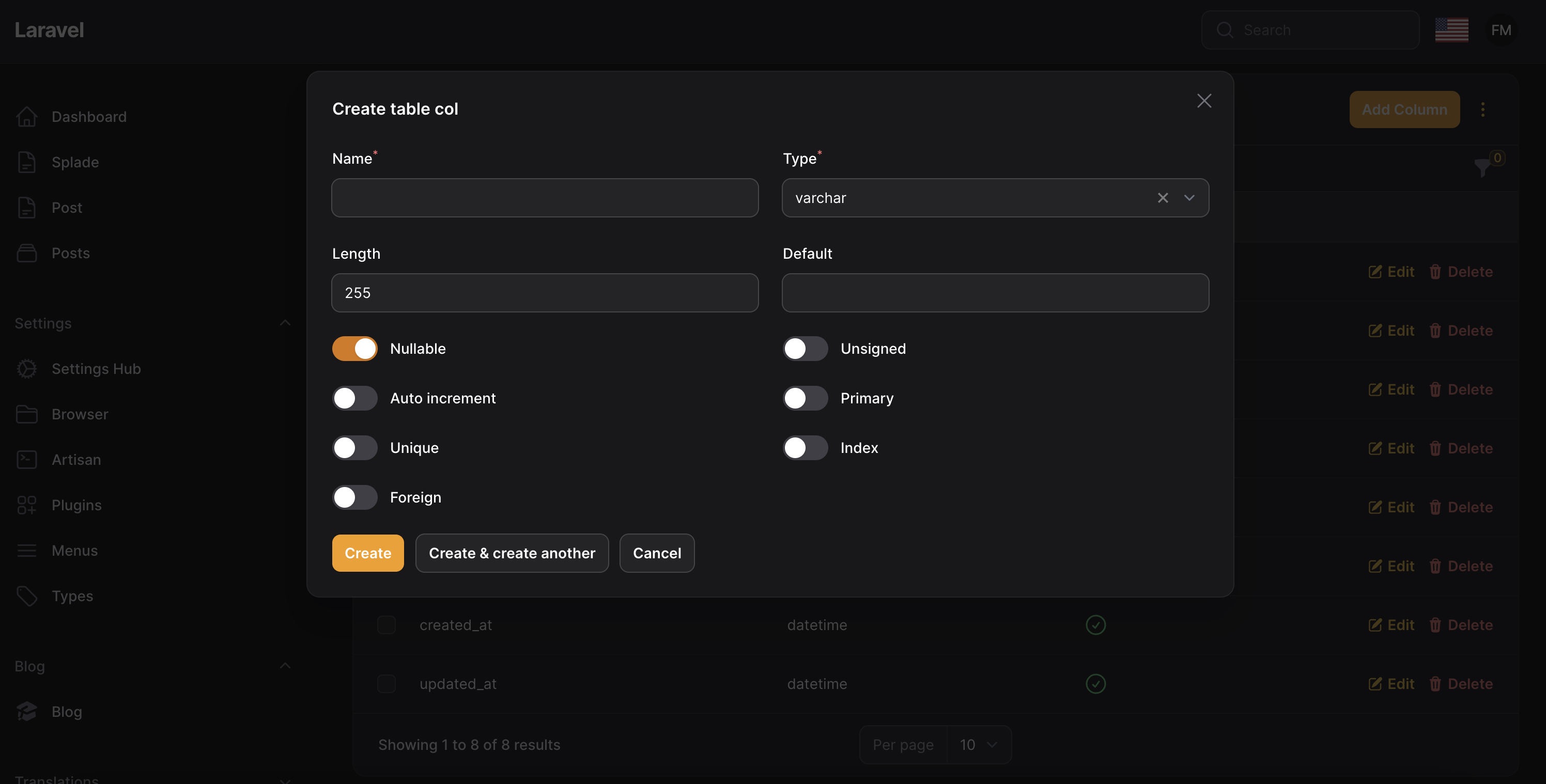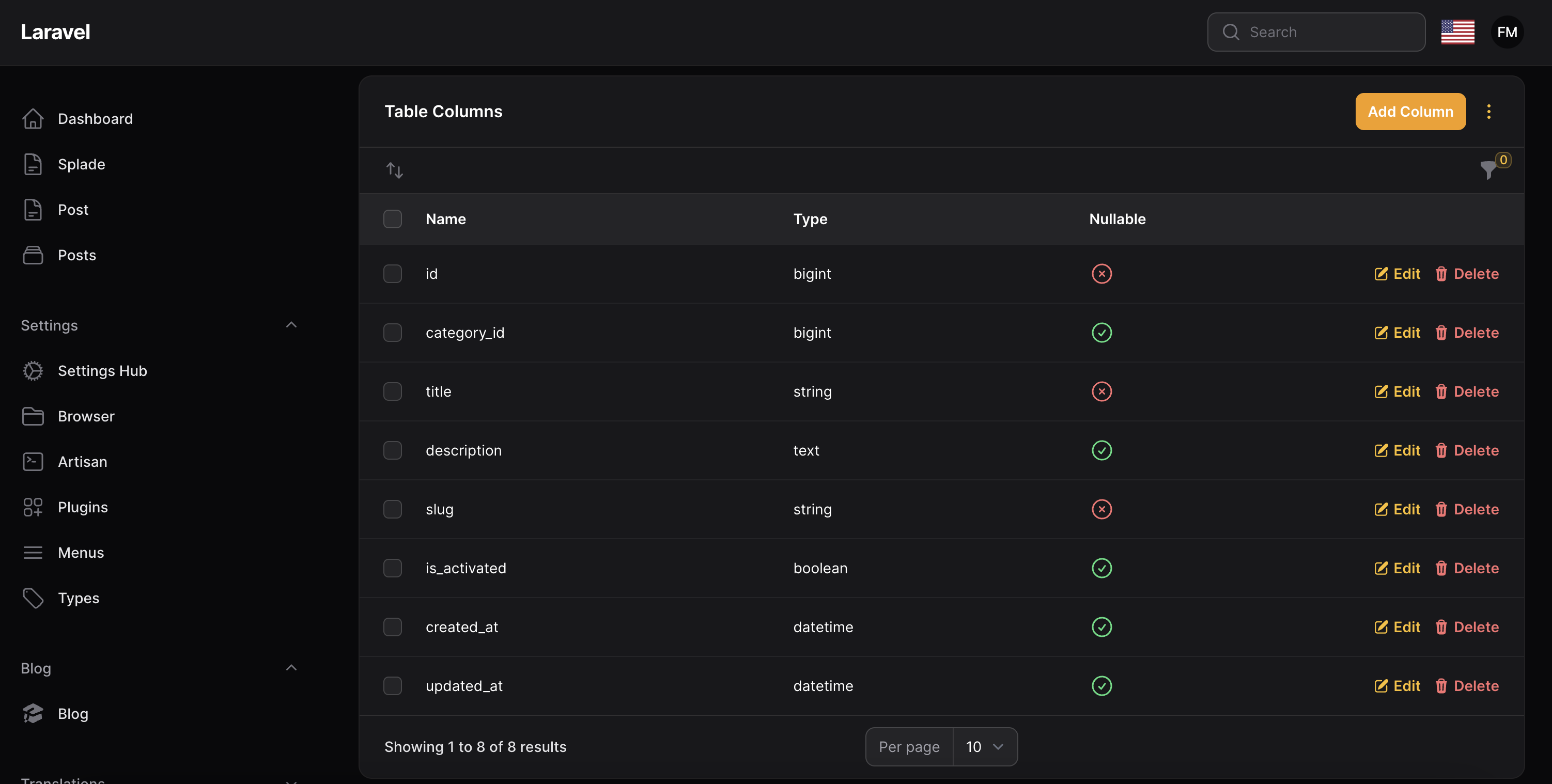Manage your modules as a plugin system with plugin generator
composer require tomatophp/filament-pluginsafter install your package please run this command
php artisan filament-plugins:installBy default the module classes are not loaded automatically. You can autoload your modules by adding merge-plugin to the extra section:
"extra": {
"laravel": {
"dont-discover": []
},
"merge-plugin": {
"include": [
"Modules/*/composer.json"
]
}
},now you need to run this command to autoload your modules
composer dump-autoloadfinally reigster the plugin on /app/Providers/Filament/AdminPanelProvider.php
->plugin(\TomatoPHP\FilamentPlugins\FilamentPluginsPlugin::make())you can create a new plugin using just a command
php artisan filament-plugins:generateor you can use the GUI to create a new plugin, after create a plugin you need to make sure that it's loaded on composer by run this command
composer dump-autoloadafter create the plugin you can create a new table inside it and than run the migration generator to convert it to a migration file then you can use the GUI to generate resources, pages, widget or model, or you can easy use this commands
php artisan filament-plugins:model
php artisan filament-plugins:resource
php artisan filament-plugins:page
php artisan filament-plugins:widgetit will generate the files for you and you can use it directly, please note that you need to generate the model first than use other commands
you can install a plugins using the command line by using this command
php artisan filament:pluginsyou can select all to install all TomatoPHP ecosystem plugins or you can select the plugin you want to install
you can list all TomatoPHP plugins by using this command
php artisan filament-plugins:listyou can list your package on the plugins list by adding this a json file in your package root folder with name module.json with content like this:
{
"name": "FilamentAccounts",
"alias": "filament-accounts",
"description": {
"ar": "full accounts manager with API\/Notifications\/Contacts to manage your contacts and accounts",
"en": "full accounts manager with API\/Notifications\/Contacts to manage your contacts and accounts",
"gr": "full accounts manager with API\/Notifications\/Contacts to manage your contacts and accounts",
"sp": "full accounts manager with API\/Notifications\/Contacts to manage your contacts and accounts"
},
"keywords": [],
"priority": 0,
"providers": [
"TomatoPHP\\FilamentAccounts\\FilamentAccountsServiceProvider"
],
"files": [],
"title": {
"ar": "Filament Accounts",
"en": "Filament Accounts",
"gr": "Filament Accounts",
"sp": "Filament Accounts"
},
"color": "#007dff",
"icon": "heroicon-c-user-circle",
"placeholder": "placeholder.webp",
"type": "lib",
"version": "v1.0",
"github" : "https://github.com/tomatophp/filament-accounts",
"docs" : "https://github.com/tomatophp/filament-accounts"
}make sure you allow packages scan on the filament-plugins.php config file
'scan' => truenow you can publish your package as module with the very easy way use this command
php artisan filament-plugins:publishand input your package name from the list and it will move it to your module folder and register the provider to you, so you can custom anything you like on the package.
you can use the selected module in your panel by using this code in your PanelProvider
->plugin(\TomatoPHP\FilamentPlugins\FilamentPluginsPlugin::make()->modules([
'CRM'
]))so you will see only the selected modules in your panel
on any plugin you can create a Page/Resource/Widget for selected panel, so if you need to showup only the current panel Page/Resources/Widgets you can use this code in your PanelProvider
->plugin(\TomatoPHP\FilamentPlugins\FilamentPluginsPlugin::make()->discoverCurrentPanelOnly())you can stop auto-load module resources by using this code in your PanelProvider
->plugin(\TomatoPHP\FilamentPlugins\FilamentPluginsPlugin::make()->autoDiscoverModules(false))you can stop using the plugins UI by using this code in your PanelProvider
->plugin(\TomatoPHP\FilamentPlugins\FilamentPluginsPlugin::make()->useUI(false))you can publish config file by use this command
php artisan vendor:publish --tag="filament-plugins-config"you can publish views file by use this command
php artisan vendor:publish --tag="filament-plugins-views"you can publish languages file by use this command
php artisan vendor:publish --tag="filament-plugins-lang"you can publish migrations file by use this command
php artisan vendor:publish --tag="filament-plugins-migrations"Checkout our Awesome TomatoPHP
